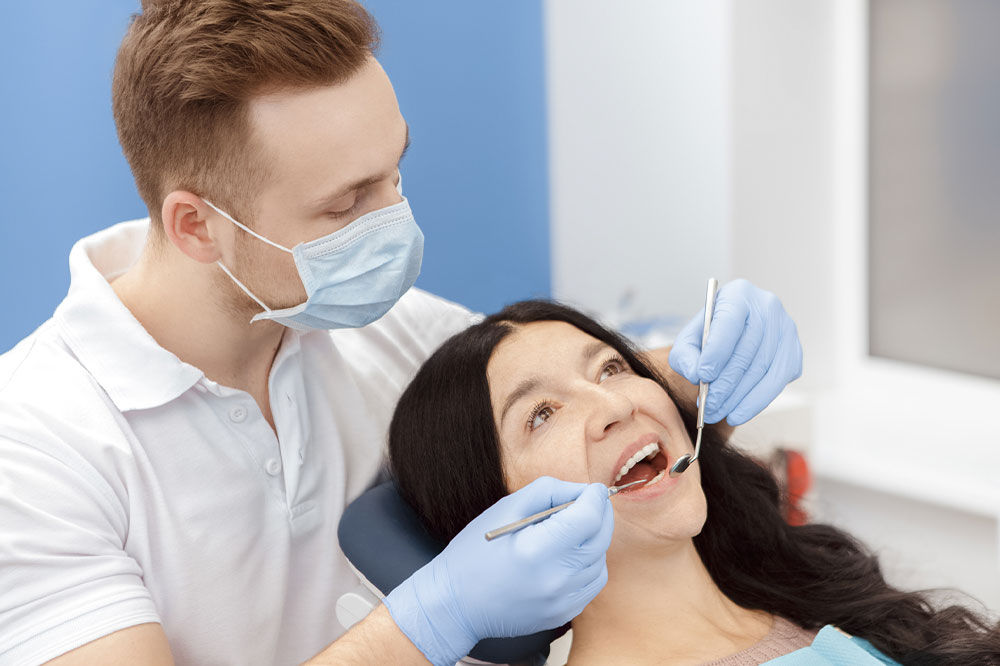Tips to Find Dentists Nearby for Affordable Dental Implants
The teeth are a vital part of appearance, providing a definite structure and alignment to the jaw. In case of severe tooth decay or damage that leads to loss of teeth, getting dental implants is a common solution. The implants can also help maintain the health of surrounding teeth and gums and carry out daily activities like chewing food. But, to have a seamless implantation procedure, it is crucial to find a reliable dentist.
Tips for finding budget-friendly dental implants
The cost of full-mouth dental implants is approximately $34,000, with the average cost per implant typically running from $3,000 to $4,500.

- Look for annual membership-based dental plans
Dental savings plans, which are annual membership-based dental plans, offer discounts on several dental health services, including dental implants. Once the plan is purchased, you can avail yourself of the desired dental health service. Moreover, these plans typically offer a list of dentists from which you can shortlist a dental health professional based on your requirements. They also complete the claims process and eliminate paperwork. Thus, it is a good idea to check out a dental savings plan to avail yourself of full-mouth dental implants at highly discounted rates with no additional money required.
Many dental insurance plans do not cover dental implants because they are considered cosmetic procedures. However, some insurance policies offer financial reimbursement for this procedure. Hence, it is best to look for dental insurance plans that cover full-mouth dental implants or at least a part of the procedure to increase its affordability.
It helps to check out the rates of dental implant procedures at different clinics based on the reputation and expertise of the dentists. The best bet is to book an appointment with a dentist with considerable experience and expertise whose fees are relatively nominal. Seniors opting for dental implants should also check whether the clinic offers any discounts on the prices of dental implants for seniors.
Care for the dental implants after the procedure
Dental implants may pose certain initial side effects and risks, especially for seniors undergoing the procedure. Not caring for your implants can exponentially increase the maintenance costs of full-mouth dental implants. Therefore, besides going for regular dental checkups, you should care for these implants by following certain basic oral hygiene practices:
- Brush twice daily
It is important to brush twice a day to get rid of oral bacteria and prevent enamel damage. Moreover, any food particles stuck between the implanted teeth can be easily removed with regular brushing. - Floss regularly
Similarly, regular flossing can remove any food particles that persist after brushing. The best time to floss is just before going to bed. - Avoid having certain foods after the procedure
Foods that can cause or increase tooth sensitivity should be avoided, especially after the dental implant procedure. For instance, sticky foods such as chewing gum, spicy foods, and crunchy foods are no-nos. - Avoid abrasive dental products
Abrasive mouthwashes and other dental products can cause severe discomfort for individuals with dental implants. Thus, it is best to avoid such products, opting for soft, nylon toothbrushes and chemical-free toothpaste. You should also avoid flavored dental products. - Use an ice pack
Ice packs can help control any swelling or discomfort you might face just after the dental implant procedure. Thus, it helps to use ice packs at 15-minute intervals during these times.
- Avoid sugary foods
Sugary foods dissolve the enamel eventually and cause cavities and plaque in the teeth. To protect the implants from decay, you should strictly limit or avoid sugary items, including cakes, pastries, soft drinks, and chocolates. - Gargle after meals
Rinsing your mouth after every meal is crucial to dislodge food particles stuck between the teeth and prevent tartar formation. - Consult the dentist for product recommendations
A dentist thoroughly understands the ingredients and materials used in manufacturing dental products available on the market. Therefore, consulting a dentist regarding the products used is advisable after a dental implant procedure. - Avoid missing dental checkups
Routine dental checkups enable dentists to check the sturdiness of the implants and check for any new dental issues that need to be addressed. It is essential to schedule these checkups at least once every six months and avoid ignoring dental problems or discomfort. - Avoid extremely hot foods for 24 hours
Dental implants are typically very sensitive just after the procedure. Hence, during this period, it is essential to avoid extremely hot foods, which can irritate the teeth and gums and cause discomfort.
Dental implants entail several benefits for individuals with missing teeth, from long-lasting solutions to tooth loss to preventing bone loss and facial sagging. However, like every other procedure, dental implants also pose certain risks. For example, they may increase your susceptibility to gum infections and cause damage to the sinuses or nerves. However, an experienced dentist can provide effective solutions to prevent or manage such issues. It is important to speak with a dentist beforehand about the possible risks and the preventive steps that must be taken during and after the procedure.

